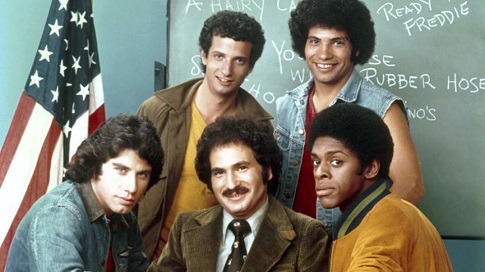The logic of the talking dog joke
RUTH VS DIMAGGIO
We were looking up the wording of a joke we wanted to tell our kids:
A guy has a talking dog. He brings it to a talent scout. “This dog can speak English,” he claims to the unimpressed agent. “Okay, Sport,” the guys says to the dog, “what’s on the top of a house?” “Roof!” the dog replies. “Oh, come on…” the talent agent responds. “All dogs go ‘roof’.” “No, wait,” the guy says. He asks the dog “what does sandpaper feel like?” “Rough!” the dog answers. The talent agent gives a condescending blank stare. He is losing his patience. “No, hang on,” the guy says. “This one will amaze you. ” He turns and asks the dog: “Who, in your opinion, was the greatest baseball player of all time?” “Ruth!” goes the dog. And the talent scout, having seen enough, boots them out of his office onto the street. And the dog turns to the guy and says “Maybe I shoulda said DiMaggio?”
Hilarious, right? You’re welcome. For some reason, we remember this being told by Gabe Kaplan in an episode of Welcome Back Kotter but we can’t find evidence of this online.
The reason for this post, however, was the web page we found the wording on. Professor of Computer Science / Cognitive Science professor Justin Li thinks about the joke in terms of the Wason selection task. Have a look.
It does seem the talent agent is wary of the reasoning fallacy called affirming the consequent, the Wikipedia example of which is:
If Bill Gates owns Fort Knox then Bill Gates is rich.
Bill Gates is rich
Ergo, Bill Gates owns Fort Knox
In the context of this joke, you don’t want to reason
If the dog can speak English, the dog can answer the questions
The dog can answer the questions
Ergo, the dog can speak English




Old joke.I remember DiMaggio but not Ruth.
I remember Mantle and Maris , the great competitio n between them, the year that was historic.
January 8, 2021 @ 10:07 pm